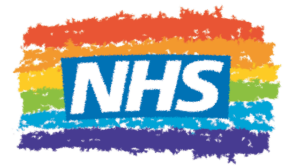NHS rainbow badges initiative

The Rainbow Badge initiative originated at Evelina London Children’s Hospital to make a positive difference by promoting a message of inclusion.
What do staff need to do?
Staff who want to commit to the programme should complete this form:
The Rainbow Badges initiative has been kindly funded and is strongly supported by our hospital charity, CW+. If you would like to find out more about their work, please visit www.cwplus.org.uk.

Why wear a badge?
By choosing to wear this badge, you are sending a message that 'you can talk to me'. You aren’t expected to have the answers to all issues and concerns but you are a friendly ear, and will know how to signpost people to the support available.
Lesbian, gay and transgender (LGBT+) patients face inequalities in their experience of NHS healthcare. A recent Stonewall survey published in Nov 2018 estimates that one in five LGBT+ people are not out to any healthcare professional about their sexual orientation when seeking general medical care, and one in seven LGBT+ people avoid treatment for fear of discrimination.
Despite the progress made towards LGBT+ equality in recent years, many LGBT+ people still face significant barriers to leading healthy, happy and fulfilling lives, with high rates of poor mental health and challenges when accessing healthcare services a contributing factor.
Increased awareness of the issues surrounding LGBT+ people when accessing healthcare on the part of NHS staff can make significant differences to their experience, and in turn on their physical and mental health.
If you want to find out more about the challenges faced in relation to sexuality and gender, please read Stonewall’s LGBT+ in Britain health report. It’s not just about wearing a badge—there are simple things we can all do to promote inclusion, such as:
- Using inclusive language in all discussions
- Affirming the identity that a person chooses to use
- Assuring confidentiality
You may be the first person someone has ever felt confident enough to open up to about how they feel, especially with the younger LGBT+ community. For them, it may be one of the most important moments of their life, and how you respond to it is something they will remember and can play a key role in making the overall experience better.
The Royal College of Paediatrics and Child Health (RCPCH) have recognised the important role of paediatricians and embedded specific LGBT+ content within the progress curriculum.
Potentially, even the perception that discrimination might happen is enough to cause harm. Simple visible symbols, such as these rainbow badges, can make a big difference for those unsure of both themselves and of the reception they will receive if they disclose their sexuality and/or gender identity.
What do I do if a person opens up to me?
The badges aren’t designed as a symbol intended to prompt people to open up to you, but they may prompt a person to disclose information about their own sexuality or gender identity, perhaps for the first time. Wearing a badge doesn’t mean you’ll have all the answers but most importantly you should be prepared to listen and signpost to relevant information.
What should I do if I feel I need to escalate a conversation?
Occasionally, you may feel that someone may need more immediate support, or that they are at risk.
You should always discuss any queries or concerns with the child or young person’s named consultant in the first instance or the consultant on call for that service. If this is not possible and further advice is needed, the consultant on service for general paediatrics can be contacted via switchboard to discuss how best to access further support.
If you are specifically worried that there is an immediate or serious risk to the young person’s physical or mental health, then you should escalate to the Safeguarding team in line with normal Trust procedure.
For non-urgent queries, you can email the team behind the rainbow badges project at chelwest.rainbow.badges@nhs.net.
Where to signpost young people for support:
- Juno Dawson’s This Book is Gay is a guide to sexuality and gender for young people, written by a young adult author
- The charity Stonewall have excellent resources to support LGBT+ young people including:
- Information for young people who are coming out for the first time
- Coming Out! Answers to some of the questions you may have
- Gendered Intelligence is a not-for-profit community interest company aiming to increase understanding of gender diversity—they have produced A Guide for Young Trans People in the UK
- The charity Mermaids work to raise awareness about gender nonconformity in children and young people with lots of useful information about gender on their website for young people and their families
- The Albert Kennedy Trust provides support for LGBT+ young people who are homeless or living in a hostile home environment
Additional resources
Got a question about the project? Please email chelwest.rainbow.badges@nhs.net.

